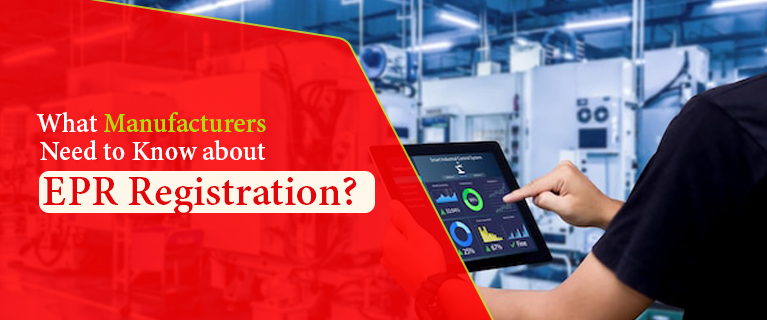Why EPR Registration Matters For Sustainable Business Practices?
Sustainability has become more than just a buzzword; it's a global movement driving businesses to adopt environmentally responsible practices. One significant aspect of this shift towards sustainability is Extended Producer Responsibility (EPR). EPR registration is a fundamental component of sustainable business practices, and in this comprehensive guide, we'll explore why it matters.
Understanding EPR and EPR Registration
Let's begin by demystifying Extended Producer Responsibility (EPR). EPR is an environmental policy approach that mandates manufacturers and producers to take responsibility for the entire life cycle of their products, including their post-consumer stage. This approach emphasizes the minimization of waste, the efficient use of resources, and the safe disposal of products at the end of their life.
EPR registration is the formal process that businesses go through to comply with EPR regulations. It involves legally registering with the appropriate authorities and ensuring that a company is accountable for the environmental impact of its products. But why does EPR registration matter for sustainable business practices? Here's why.
1. Legal Compliance
One of the most compelling reasons for EPR registration is to ensure legal compliance. In many regions, EPR is mandated by law, and failing to register can lead to significant fines, penalties, or even the shutdown of operations. To run a sustainable business, it's crucial to adhere to the legal framework, and EPR registration is a vital part of this.
2. Environmental Accountability
EPR registration places the onus on businesses to be environmentally accountable for their products. This means they must consider the environmental impact of their products throughout their entire life cycle, from production to disposal. This accountability fosters sustainable practices and encourages companies to reduce waste, improve recycling efforts, and minimize pollution.
3. Resource Efficiency
EPR registration is not just about taking responsibility for product disposal; it's about optimizing resource use. Companies are incentivized to reduce the material and energy inputs in their products, as this leads to fewer waste management costs, reduced raw material consumption, and overall resource efficiency. This is a win-win for the environment and the business's bottom line.
4. Circular Economy
EPR encourages businesses to adopt a circular economy approach. Rather than the traditional linear model of "take, make, dispose," a circular economy promotes reducing, reusing, and recycling products. Companies registered under EPR are encouraged to design products that are easier to recycle and to create take-back systems for used products.
Read Also This - Best EPR Registration Consultants in the Industry5. Brand Reputation
In today's socially and environmentally conscious world, a company's brand reputation matters more than ever. EPR registration is a testament to a business's commitment to sustainability, which can significantly enhance its brand image. Consumers are more likely to support and remain loyal to brands that prioritize eco-friendly practices.
6. Cost Savings
While EPR registration involves an initial investment in compliance, it can lead to substantial cost savings in the long run. Efficient resource use, reduced waste management expenses, and optimized production processes can all contribute to a healthier bottom line.
7. Innovation and Product Development
EPR challenges businesses to innovate and develop products that are less harmful to the environment. Through the registration process, companies often discover new ways to make their products more sustainable, which can open doors to new markets and audiences.
8. Market Access
EPR is not just about meeting local regulations. It's also about gaining access to international markets. Many countries and regions demand proof of EPR compliance as a condition for exporting products. Registering under EPR is a gateway to broader market access.
9. Employee Engagement
Sustainability initiatives like EPR registration can significantly boost employee engagement. When employees see their company making responsible environmental choices, it often leads to higher morale and satisfaction. A sense of purpose in the workplace can attract and retain talent.
10. Future-Proofing
EPR registration future-proofs businesses, ensuring they remain relevant and adaptable in an evolving economic and regulatory landscape. Companies that invest in sustainability now are better prepared for future challenges.
Conclusion
EPR registration is a cornerstone of sustainable business practices, ensuring that companies take full responsibility for the environmental impact of their products. By registering under EPR, businesses can stay legally compliant, promote resource efficiency, reduce waste, and enhance their brand reputation. It's a pivotal step towards a more environmentally responsible and sustainable future, and professional consultants can help businesses navigate this journey with confidence and ease.




Comments
Post a Comment